It’s Time To Start Accepting That Second Language English is My Superpower, Not My Shame.
Do we have the right to teach anyone how to write if English is our second language?
Hi friends,
I'm back from the most intensive month of my life. I visited my home country for the first time after six long years, and it was so overwhelming!
So much joy, love, excitement, but also sadness and nostalgia…
Amazing long-life friends, excellent food, lots of hugs, stunning nature, welcoming and warm people… that’s just a tiny part of what my Serbia has to offer.


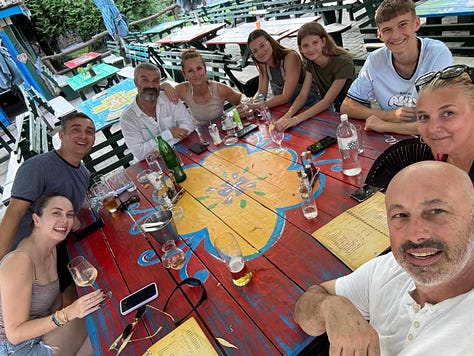
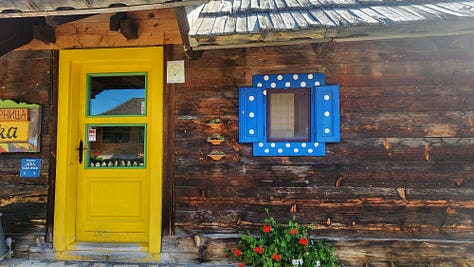
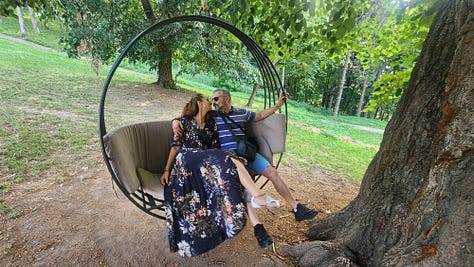


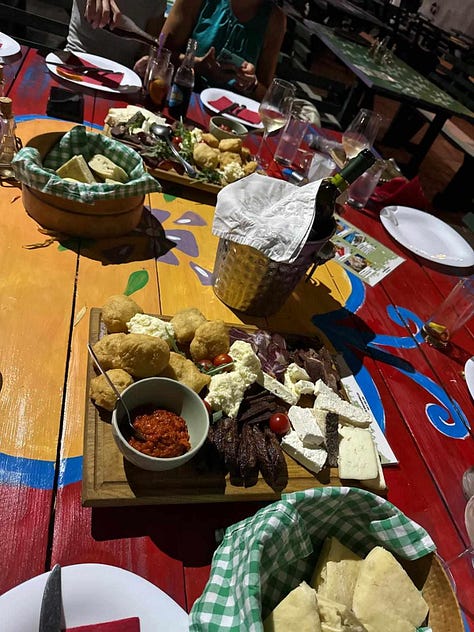

However, the main impression from my trip was my bond with my friends and family.
No matter how much time has passed, six days, six years or decades, we’re still there for each other, which makes me a very wealthy woman.
That's where the real wealth is - in your network and connections. The more long-lasting, high-quality you have in your private life or business, the more you'll thrive.
I didn't even have an offer to sell when I started this newsletter. I just wanted to offer my marketing experience accumulated in the last 20 years. Also, I wanted to start building a meaningful network similar to the one I built back in my home country, Serbia.
And I still think I have so much to offer. But, every then and now, I can’t help but wonder: How will I try to teach people writing when English is not my first language?
I know for sure I’m making so many mistakes, so how can I be an authority for other writers?
Luckily, I have many wise people around me to tell me: Your second language means you know more than one.
I started writing online in English in January 2023 because of shame. I spent almost five years in Australia, but my English was still awkward.
I occasionally sounded like a drunk Russian, and you could meet my strong accent sitting in the first half of every sentence.
Although I have worked as a full-time Marketing Executive and wrote daily marketing content in English, I still considered myself “not fluent enough” in English.
And I write a lot in English. Look at my Grammarly account:
I’ve been living from writing since 2001.
Although I was a master of words in my homeland, I felt like someone cut both my hands when I needed to express myself in a language I didn’t have a perfect command of.
Go out of your comfort zone.
I was at a low point in my life, mourning my father, who died 13.000km away from me, while I was locked in Australia due to COVID-19.
Writing saved me multiple times in my life, so I started writing online again. I exposed myself to a Medium audience to see if I could write under my full name in English, online as I did in Serbian for years (trivia — I was a parenting influencer and blogger in my country)
I forced myself to publish articles one after the other, and it took me ages to deliver each one.
I was positive that people would laugh when reading my writing and maybe leave comments like these:
“Look how bad her English is”.
“Look at these obvious mistakes and Frankenstein’s sentences”.
Did that happen at all?
Of course not.
I found a community of supportive people who liked my writing, even with all my typos and lack of deep language knowledge.
Some of them even admired my attempts after finding out I didn’t learning learning English seriosly before age 36.
Others disregard my occasional mistakes because my stories were interesting enough to them.
You don’t belong there.
Being an immigrant bears a fair bit of shame and that weird feeling you don’t belong there.
Imagine: you’re a big tree, pulled from the land and taken to another landscape.

Your roots are cut.
Your inside is broken.
Yet, you must smile and try to fit into the new soil while your open wounds bleed.
That’s how I felt as a new immigrant. That’s how I still think sometimes after six years of being in a new country.
My broken English is — my superpower!
Aussies do not know other languages.
Their eyes are wide open when they realise I am a native of Serbian but also learned Russian and French during school ( 92% of European students learn another language in school). The bottom line is that my English will always be better than their Serbian.
But I learned a big truth:
Someone speaking broken English means that person knows more than one language. And it often means I spend more time on my writing and I check everything multiple times.
It’s time to celebrate that achievement, not to be embarrassed by mistakes or a non-native level. Things are even more complicated if you speak both languages simultaneously: in my family, we speak Serbian at home and English everywhere else.
My brain works at 100% speed, as I manage both languages at the same time. Do you know how difficult is think in one language and speak in another?
I speak English, but my brain thinks in Serbian.
Unlike my youngest daughter, who is 13 now but was 7 when we came to Australia, her brain often chooses English rather than Serbian.
She is clearly so much better at English than I am. Her young brain is much better at constantly switching on and off between different languages.
“Every time you go to speak this new language, the other language is like, ‘hey, I’m here, ready to go’,”
Says Matt Goldrick, a professor of linguistics at Northwestern University in Evanston, Illinois.
“So, the challenge is, you have to suppress this thing that is so automatic, and so easy to do, in favour of this thing that’s incredibly hard to do as you’re first learning it.
This also explains why many of us sometimes struggle with our native language. I was a journalist for 12 years and was proud of my language command and skills.
After six years of immersion in English, I often feel insecure about Serbian grammar and sentence style.
Instead of becoming an average speaker of both languages, I choose to practice them both, fully immerse myself in both, and push my brain to benefit from them.
I choose to be proud of my language knowledge and wear all my mistakes as honour badges.
Feel free to let me know (gently) when I make mistakes; I’ll be grateful as that way, you will become my mentor and part of this incredible journey.
p.s. I even dared to teach others content writing - this newsletter is crafted around writing better stories, crafting better content and developing your business through marketing.
So, let me know in the comments if English is your second language and how you are coping with your doubts about writing/content creation in a language that’s not your first language.




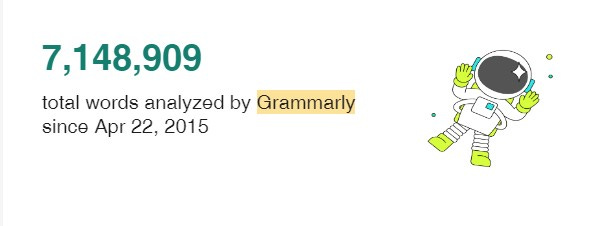
Hi Angelina, so impressed that you can write so well in a second language. I'm a mono-lingual Australian with some oral fluency in Italian but that’s it. My son has lived in Sweden for 7 years and now writes it fluently as do his children. I'm in awe! So write on! Substackers like you, @katerinagod and @veronicallorcasmith have wonderful gifts to share in your second (or third?) languages.👍
I'm Italian. I started loving the English language in middle school. Now I'm 42.
I waited until a couple years ago to start publishing in English. Too much.
It was just stupid self doubt.
Readers and editors appreciated my content since the beginning. I know my use of the language is not a the level of native expert writers. But it's more than enough to write helpful content.